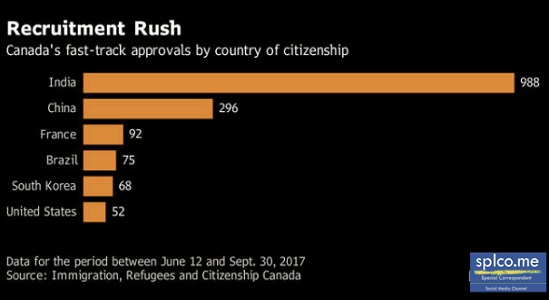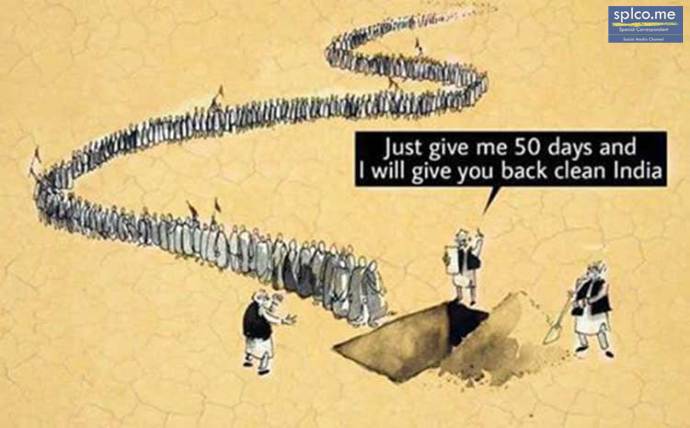As President Donald Trump moves to crack down on the immigration of high-tech workers to the U.S., Prime Minister Justin Trudeau's new Global Skills Strategy is taking off.

Canada's fast-track visa program is just one part of Trudeau's drive to boost innovation. The government is also pouring hundreds of millions of dollars into venture capital and support for artificial intelligence, joining private money investing in the country's tech hubs in Waterloo and Toronto, Ontario, Vancouver and Montreal.
Two thousand people may be a small sliver when compared with the 320,000 newcomers Canada welcomed last year.
"It sounds like a drop in the bucket," says Daniel Mandelbaum of immigration firm Mamann Sandaluk & Kingwell LLP. "The idea is this is two thousand of the best and brightest."
"It's more successful than we predicted," Canada's Immigration Minister Ahmed Hussen said in a phone interview. "This program came from the business community. They identified a challenge and said you need to fix it."
Those who are fast-tracked can apply to stay as long as three years and also for permanent residency. Computer programmers, systems analysts, and software engineers, are the top three categories of workers to benefit so far.
The bulk come from India the same country that makes up the majority of U.S. H-1B visas issued followed by China and France.
Word is spreading throughout Canada's tech community. Biotech company Cyclica Inc. is preparing to use the system for the first time to recruit an American.
"He is a highly skilled and seasoned executive with a Ph.D. in computational chemistry, a prime candidate," said Naheed Kurji, the CEO of the Toronto-based company.
As a candidate, Trump railed against the H-1B program. There are several regulatory and legislative efforts underway in the U.S. to reduce abuse in the program and the number of applications being challenged has jumped.
To those who have watched Canada hemorrhage talent to the U.S. over the years, the tables may be turning.
"We've seen a spike in talent coming from south to north for our companies," says Yung Wu, CEO at tech incubator MaRS Discovery District. "They are reporting 30 to 40 percent of their applicants coming from down south."














